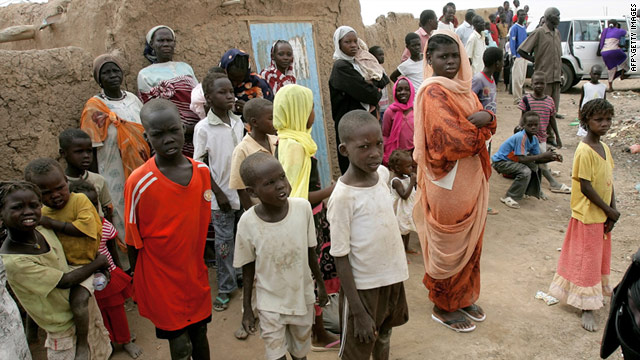By Tamara Alfred
Impunity Watch Reporter, Africa
KHARTOUM and ABYEI, Sudan — An independent United Nations expert on human rights issued a statement on Wednesday criticizing the human rights situation in Sudan that has arisen due to the political, military and humanitarian crises currently engulfing the country.

Fighting broke out in Abyei in mid-May when alleged southern Sudanese forces attacked a U.N. Mission, protected by the Sudanese army, resulting in the deaths of at least 22 soldiers. The Sudanese army retaliated and took control of the town, expelling southern Sudanese units of the Sudan People’s Liberation Army. The takeover was followed by extreme violence that led to the displacement of thousands of southern Sudanese.
“I visited Abyei and I am concerned not only of the destruction, massive displacement of the residents, and the attendant human rights crisis,” said Justice Mohamed Othman Chande during a news conference in Khartoum, “but also the future status and security of the residents of Abyei. I received allegations of killings, rape and other forms of inhuman and degrading treatment during and subsequent to the attack.”
South Sudan officials estimate that more than 80,000 people fled during the attacks on Abyei. Many fled to Wau, the capital of Western Bahr-el-Ghazal in South Sudan. One woman told a reporter that she had journeyed for four days, without food or water, to escape the violence. Another woman’s two-year-old son died of dehydration on the way.
“I had to just bury him and keep going with my other children,” said the woman.
In addition to the violence, Chande also criticized the lack of humanitarian assistance to internally displaced persons in south Darfur, as well as the state of political freedoms.
“The state of emergency in Darfur continues to curtail fundamental rights and freedoms, [including] arbitrary arrests and prolonged detentions without judicial oversight,” said Chande.
U.N. peacekeepers have been stationed in Abyei since 2005 in an attempt to monitor the various peace agreements made in the warring nation. However, earlier this week, Sudan’s envoy to the U.N., Daffa-Alla Elhag Ali Osman, informed the U.N. Secretary-General than UNMIS would not be welcome once the country splits.
Southern Sudan is scheduled to become an independent nation on July 9, after 50 years of civil war between the Arab north and African south. Abyei lies in a contested and fertile border region that both the north and south claim ownership over. After the events in May, Sudanese President Omar al-Bashir declared that “Abyei is northern Sudanese land.”
For more information, please see:
CNN – U.N. expert criticizes human rights situation in Sudan – 9 June 2011
The New York Times – North-South Clashes Break Out in a Center of Sudan Tensions – 6 June 2011
Slate – So Much for the Peaceful Division of Sudan – 1 June 2011
Foreign Policy – Terror in Abyei – 31 May 2011